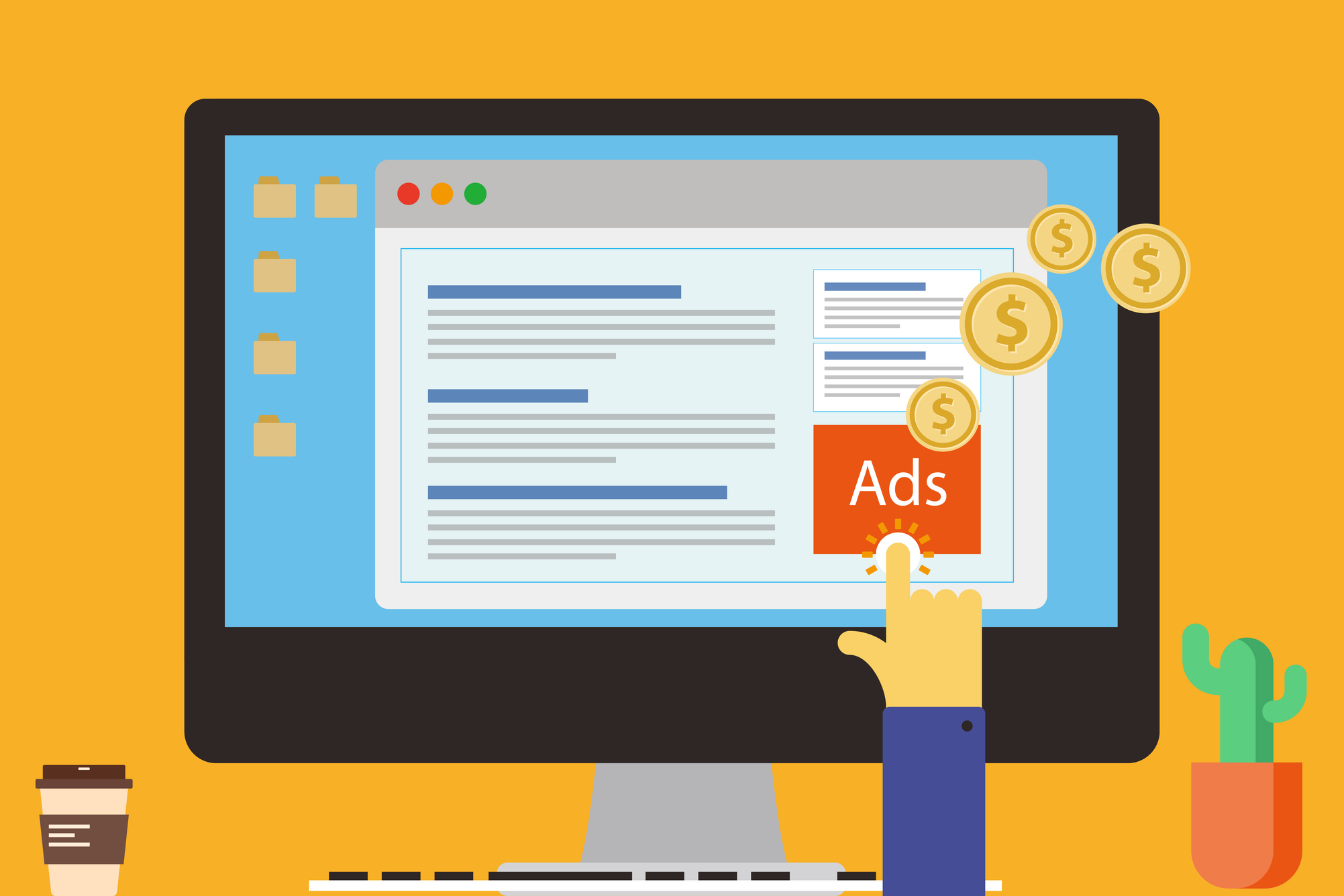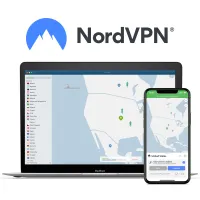Targeted ads are a problem—here’s why
Are we swapping our digital privacy for a little convenience?

Targeted ads are one of those things we’ve come to accept as an inevitable part of the internet—like chaotic comment sections and social media posts that share way too much. However, should we be more concerned about the ever-present nature of targeted ads?
Marketing bigwigs claim that they’re a great way to streamline our online shopping experience—and sure, it might be useful to see an ad for a product you searched for earlier in the day. The idea of swapping the confidentiality of our browsing habits for a shopping shortcut doesn’t sit well with everyone, though. Keep reading as I dig into what targeted ads are, how they work, why data brokers are dodgy, and how security software like the best VPN services can help.
What are targeted ads?
A targeted ad is indistinguishable from a regular ad at first glance. The difference is that they’re targeted and tailored to you.
How? Well, targeted ads use cookies—little files that keep tabs on you as you browse the web. Cookies track you as you go about your digital business, collect information, and pass it back to a parent company so that they can generate specific ads. They’ll also use your data for analysis, seeing as marketers are keen to get a better understanding of which ads you’re more likely to click on.
Cookies can gather a lot of pertinent information about you, including:
- Web searches
- Browsing history
- What you interact with on a site
- What you buy (or consider buying) on a site
- Location
- The device you’re using
The same cookies can appear on multiple sites, too, and this isn’t ideal for us privacy-oriented folks. It means that once one site has collected information about you, multiple sites might have access to it. According to a 2022 report by Xuehui Hu and Nishanth Sastry, a third-party cookie that lives on the BBC site and NYTimes site can recognize that you’ve visited both pages, determine that you have an interest in news, and spin up a tailored ad based on the fact.
The problem with targeted ads
The purpose of targeted ads is to point you in the direction of products you (probably) are more likely to buy.
Unfortunately, we pay for the innovation with our digital privacy—and here are some of the more concerning effects of targeted ads.
Revealing information
The nature of targeted ads means that they're built off of our identifiable information. This can include stuff like our names, location, income status, political allegiance, and sexual orientation, to name a few. It's the sort of sensitive information that you may not want to be used as grist for the digital mill (and displayed back to you in the form of an ad).
For example, someone who's recently experienced a bereavement and done some related web searches may be upset by targeted ads reminding them of the trauma.
Constant nudges
Though they might seem like a bright idea, targeted ads aren't that bright. For one thing, they can't tell that the product they're pushing, and the thing you searched for earlier, was a one-off purchase you won't need to buy again. So, you might end up seeing a lot of irrelevant ads for stuff you already have.
Overcharging
Businesses can use collections of personal data to make assumptions about you. Then, these businesses (like insurance companies) can adjust the price of their plans and products accordingly. Someone from a low-income background, for example, might see fewer items on a page than someone else.
Spreading disinformation
Targeted ads aren't solely used to push purchases. In the past, they've contributed to the spread of disinformation and discrimination.
This isn't tinfoil hat stuff, either, as Facebook ads were criticized for leaning into racial biases. Targeted Facebook ads have been used to dissuade black and Latino constituents from voting in the 2020 election, too.
According to NPR's interview with activist Andre Banks, the ads were "masquerading as black Americans, drawing people into conversation and ultimately turning that conversation toward bad information and often toward a sort of deep cynicism that made people sort of less inspired to [vote]."
Similarly, the Cambridge Analytica scandal of 2018 parted the veil on the scale of ad-induced political manipulation, when data from 87 million Facebook profiles was used to inundate users with Trump election ads.
Despite all this, I often hear the argument that if you're not up to anything dodgy online, then what's the harm in ads using your information? I get it—but everyone has a right to digital privacy, and our private information shouldn't be so heavily commodified.
Plus, as I mentioned earlier, a lot of people simply can't afford for this information to end up plastered all over their browsers. Anyone searching discreetly for health services, questioning their gender or sexual orientation, or doing a little personal shopping may prefer to keep their data to themselves.
What are data brokers?
Data brokers deal in information—namely ours. They gather this information from all corners of the web and aggregate it, creating layered user profiles that you can't generate from just a social media profile or someone's repeat searches. These profiles are sold to interested parties, like advertisers and marketers, for a huge profit. There's a massive demand for information, too, as industries push for more high-yield and far-reaching advertising campaigns.
It's a massive, lucrative business, and it's estimated that the revenue generated by data brokers is in the billions or trillions of dollars. Why? Well, advertisers are willing to pay a fortune for highly specific profiles based on demographic information. They'll use it to create the targeted ads we see everywhere, pushing products and services out into every corner of the web.

The problem with data brokers
Let's start with the fact that data brokers aren't picky about where they gather data from. They'll plumb the depths of your social media page, any surveys you fill out, your transactions, and even your public records. It bags them a ton of data to use—and they'll use our activity to turn a profit.
On average, data brokers have around 1,500 pieces of info on the average American citizen.
There's a glaring issue here, however. Think about it: we don't talk, act, or think the same way everywhere on the web—just like in real life. So, when data brokers compile profiles from varied sources, it creates an odd picture of us, trying to smooth our facets out into a uniform surface. Things get even more mish-mash if we're sharing devices or just have a penchant for doing weird searches at 2 am to stave off insomnia. So, what this means is that data broker profiles create targeted ads that are a little bit off the mark.
There's also the question of whether data brokers are acting legally or not. It's an annoyingly gray area. In some countries, collecting, collating, and selling personal data is illegal, but data brokers still do their thing regardless. Unfortunately, a lot of data brokers skirt suspicion by getting us to agree to well-hidden consent forms in apps, sites, and services.
How to protect yourself against targeted ads
If you're wondering how to reduce the number of targeted ads you see, and how to keep your personal data safe from snoopers, don't worry—there are a few things you can do right away.
Invest in an ad blocker
First and foremost, it’s well worth investing in one of the best ad blockers around. These handy tools are lightweight and sit right in your browser, and you won't need to be a technical wizard to get set up. All you need to do is install the ad blocker, activate it, and then watch the ads disappear.
The Xuehui Hu and Nishanth Sastry report found that uBlock Origin was better at blocking ads than AdGuard and Ghostery, and that Firefox has better built-in ad protection than Google Chrome.
De-Google your browsing sessions
Google is the internet's omnipresent entity, and if you're signed in to a Google account, your browsing habits get collected and funneled into targeted ads. The same goes for Facebook profiles, too, and continues even if you switch from desktop to mobile.
Try a VPN
Today’s top virtual private network services aren’t just VPNs, they often come with extra tools designed to safeguard your personal information. NordVPN has a handy Thtrat Protection feature that’ll put a stop to trackers doing their thing and following you across the web. You might still see some ads, but they won’t be eerily relevant, because VPN encryption conceals your original IP address, approximate location, and browsing history.
Try the best VPN in 2026: NordVPN
NordVPN is a massive name in the VPN sphere—and for good reason. It’s an all-in-one security suite jam-packed with extra features. I particularly like NordVPN’s Threat Protection, seeing as it puts a stop to trackers doing their thing and following you across the web. You’ll also have the option to whitelist ads on some sites if you want to support certain content creators.
Try NordVPN in your own time, risk-free, with a 30-day money-back guarantee.
▶ Find out more in my NordVPN review.
Sign up for breaking news, reviews, opinion, top tech deals, and more.

River is a Tech Software Editor and VPN expert, helping take care of cybersecurity content on TechRadar, ranging from reviews, buying guides, and must-have VPN deals. River's expertise in the cybersecurity field opened their eyes to the startling amount of online snooping we accept into our daily lives. Now, River is committed to fighting for your right to digital privacy by shining a light on its biggest threats – and helping readers safeguard their data with the help of a VPN. Surfshark is River's favorite VPN, and they use it every day to keep their most sensitive details out of the hands of third-party trackers.
